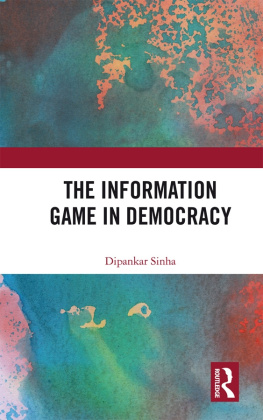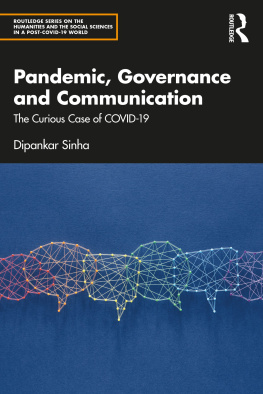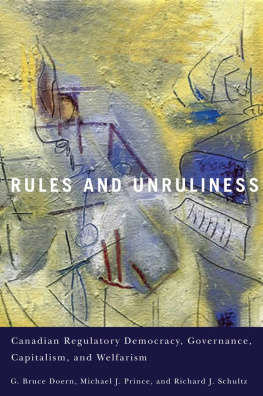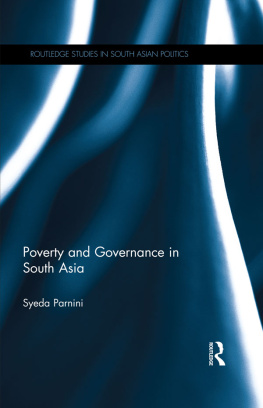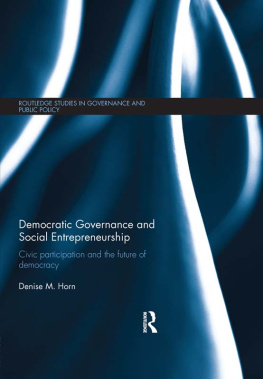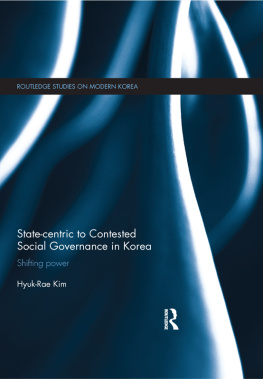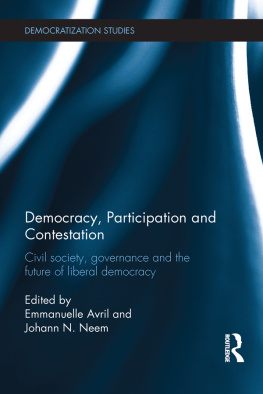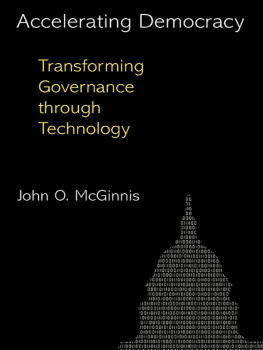The Information Game in Democracy
This book examines democracy and governance from the unconventional and largely under-researched vantage point of information. It looks at the exclusionary informational dynamics in democracy and analyses the role of information capitalism, new technology, virtual networks, cyberspace and media.
While emphasizing the foundational value of information as the source code of modern societies the book explains how it is strategically maneuvered in technologies of governance in so-called established and credible democracies. It studies the neutralization and subversion as well as the complex, nuanced and multidimensional act of othering of people, who are supposed to be the repository of power in democracy and in whose interest the business of governance is expected to be conducted. The work highlights the challenges of technocratic interpretations, stunted public policy communication, hyped information society, cooption through the state-of-the-art capitalism, rhetoric of virtual networks and the often-unilateral agenda of mainstream media.
A major intervention in understanding the nature of contemporary democracy and polity, this volume will be of great interest to scholars and researchers of politics, media, political communication and technology studies.
Dipankar Sinha is Professor of Political Science, University of Calcutta, India. He is Honorary Associate, Centre for Media History in Macquarie University, Sydney, and Nominated Member, Association of Third World Studies, USA. He also acts in advisory capacity in academic, governmental, non-governmental and civil society organisations. His broad interest relates to informational and communicative modes of development, democracy and governance in the globalizing era. He has authored Communicating Development in the New World Order: A Critical Analysis (1999), Media Sanskriti [Media Culture] (2003), Development Communication: Contexts for the Twenty-First Century (2013), and Development Narratives: Walking the Field in Rural West Bengal (2014). His co-authored volumes include Media, Gender and Popular Culture in India: Tracking Change and Continuity (2011). He has also co-edited Webs of History: Information, Communication and Technology from Early to Post-Colonial India (2005) and Democratic Governance in India: Reflections and Refractions (2007).
The Information Game in Democracy
Dipankar Sinha

First published 2018
by Routledge
2 Park Square, Milton Park, Abingdon, Oxon OX14 4RN
and by Routledge
711 Third Avenue, New York, NY 10017
Routledge is an imprint of the Taylor & Francis Group, an informa business
2018 Dipankar Sinha
The right of Dipankar Sinha to be identified as author of this work has been asserted by him in accordance with sections 77 and 78 of the Copyright, Designs and Patents Act 1988.
All rights reserved. No part of this book may be reprinted or reproduced or utilised in any form or by any electronic, mechanical, or other means, now known or hereafter invented, including photocopying and recording, or in any information storage or retrieval system, without permission in writing from the publishers.
Trademark notice: Product or corporate names may be trademarks or registered trademarks, and are used only for identification and explanation without intent to infringe.
British Library Cataloguing-in-Publication Data
A catalogue record for this book is available from the British Library
Library of Congress Cataloging-in-Publication Data
A catalog record has been requested for this book
ISBN: 978-1-138-06320-4 (hbk)
ISBN: 978-0-429-50766-3 (ebk)
Typeset in Sabon
by Apex CoVantage, LLC
In memory of Sekharesh Chandra Bose
Arguing with whom was always a pleasure
Contents
Every manuscript has the authors struggle, mostly as a loner, inscribed in it before it sees the light of day as a book. The current one is no exception to the norm. It is basically the result of a slow but steady self-realisation that often the building block escapes our notice while we view the building itself and even when we live in it. Here, the metaphorical reference is to the building of democracy and to its building block, information. Being engaged in political studies (which I prefer to the more widely circulated term, political science) first as a student, and then as a researcher and teacher for three decades, democracy was an integral part of my pedagogical exercise and everyday academic-professional life. Thankfully, my study had not made me very complacent about the existing theories of democracy; nor was there a strong sense of satisfaction when it came to understanding democracy as a researcher. The question that continued to nag me was, what is there in democracy itself, which tends to subvert its core ideals from within. The result of such process, as I could see, often is not just incidents of departure here and there but of continuing deviance. But it is also a fact that being confronted with the already existing classical literature of democracy and its ever-growing current literature, which together would take more than a lifetime to come to terms with, it was like a journey in the labyrinth in which one hardly has the scope to focus on the building block. Yet, navigating through the maze of literature on democracy, that too from various vantage points of the discipline, I realised the need to go beyond the surface and have a closer look at democracys building block. Living and surviving in the worlds largest democracy provided adequate incentive to embark on the task.
There is hardly any doubt that social science has been engaged with exploring the Information Age, its emergence and intensification, for a fairly long time, the last five decades to be exact. But studies on the status and possible fate of democracy in the Information Age are relatively few, if one excludes the over-optimistic and superficial studies indicating the automatic expansion of democracy by the Internet. Thus, we have in our possession parallel processes of conceptualising and theorising of democracy on the one hand, and the Information Age on the other hand. Both processes are marked by high creativity in the world of social science. But when it comes to the core issue of information and perceiving democracy from its end the studies are far less and infrequent. Information is not treated with due care in most studies of democracy. Even when such theme makes its way in the text it would be provided a marginal status, a sort of lip service. When the building block is relegated to the margins, attention is diverted not just from the state of the building itself, but also from the state of its inhabitants. We, the people may become a very venerable phrase associated with democratic polity, especially with it being the starting point of the preambles to the constitutions of two of the worlds most prominent democracies, the American and the Indian. But when it comes to the hurly-burly world of democracy-in-practice there may be very subtle acts of othering, transforming it into They, the People. In this context I would like to refer to two entries in the New Yorker Book of Political Cartoons (Mankoff 2000) having much relevance for our theme. The first one (p. 5) shows a perplexed senator who is informed by his secretary that the American people whom he often mentions in speeches would like a word with him. The second (p. 7) shows a political activist in a debate setting, stating thats an excellent pre-screened question, but before I give you my stock answer I would like to disarm everyone with a carefully rehearsed joke. Surely, cartoons convey the political message much more quickly than words.

